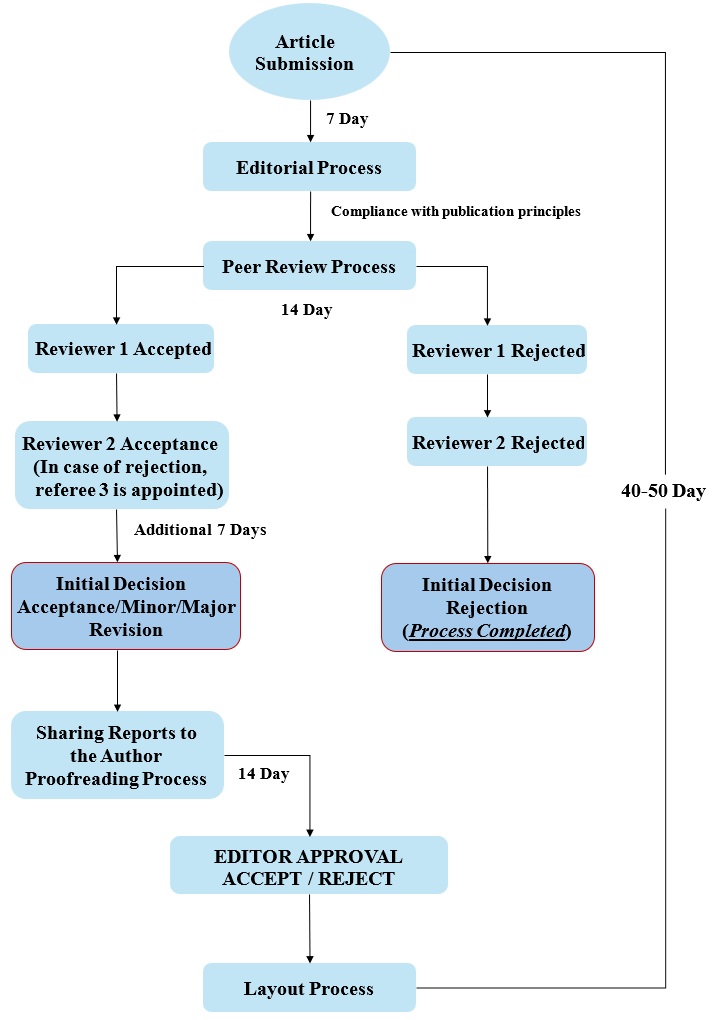Ethical Principles and Publication Policy
The processes implemented by the Journal of Recreation, Sports and Tourism Research (JRSTR) aim to contribute to publishing within the framework of academic ethics. Compliance with scientific principles and ethical guidelines is required from all parties involved in the publication process, including authors, reviewers, editors, and readers. In this context, the journal’s publication ethics and open access policy adhere to the guidelines and principles established by the Committee on Publication Ethics (COPE), such as the Code of Conduct and Best Practice Guidelines for Journal Editors and the COPE Best Practice Guidelines for Journal Editors. These principles ensure that all components of the publication process comply with ethical standards.
Submitted manuscripts are first evaluated for compliance with the journal's formatting requirements and thematic relevance. If deemed unsuitable by the editors, the manuscript will be rejected. Manuscripts deemed appropriate by the editors are forwarded to reviewers who possess expertise in the relevant field, based on the recommendations of the editorial board and the manuscript's subject matter. The peer review process follows a double-blind procedure. Based on the reviewers’ reports, the process will result in one of three outcomes: acceptance, revision, or rejection. If revisions are required, authors must complete the necessary changes within the timeframe specified by the editor. Revised manuscripts will be re-evaluated by the same reviewers to ensure the quality of the revised submission meets acceptable standards. The acceptance letter will only be issued after the revision process is complete. Authors will be informed about the potential publication date of their manuscript.



